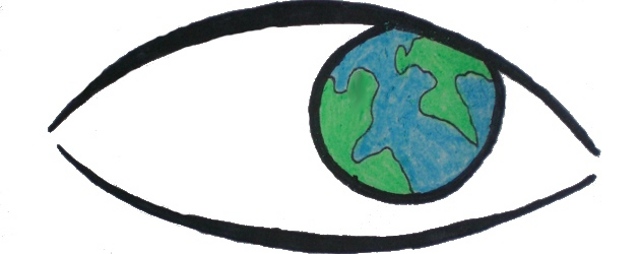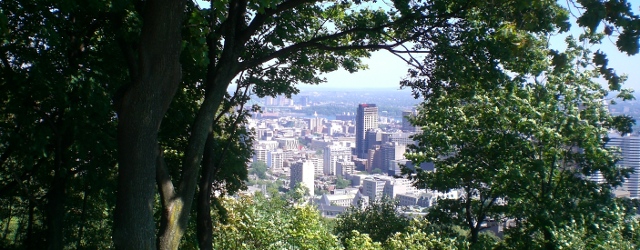A recent Clean Technica article said that solar power would be cheaper than coal if it received the same subsidies. This is incorrect.
Tag: Politics
National and cultural issues that contribute to poverty and hamper development
Now we are going to discuss the issues that shape the development of extremely poor nations and cultures.
Our global human tribe: How we must extend empathy beyond our religion and nation
Jeremy Rifkin implores us: “to begin rethinking human nature. To bring out our empathic sociability, so that we can rethink the institutions and society and prepare the groundwork for an empathic civilisation.”
Jim Elliott shares his thoughts on sustainability, community, and living green
Jim Elliott is a notable figure in the sustainability movement in Regina and Saskatchewan. He is involved with many environmental action groups, poverty-reduction groups, and the Citizen’s Public Transit Coalition for Regina.
The foundations of personal change
How do we change as people? Why do we change as people? This work is intended to be an earnest discussion of the realities of personal change.
Fixing our media hypnosis
We have an ever-accelerating journalism cycle that is making mistakes, shortening our attention spans, presenting opinion as news, and trivializing our political debates. We are learning that even though we have an unimaginable wealth of information at our fingertips, our trust can be easily misplaced.
Hans Rosling: Health, wealth, and progress of the world
While demonstrating the changes on his graphs, Rosling delivers a rapid-fire description of the major political choices and world forces that are driving the change.
Media speed’s negative effect on politics
The advent of intense media speed and opinion masquerading as news have had some damaging effects on our political system. This is especially evident in the coverage leading up to and during elections.
Epidemic of ‘news’ that is not actually news
Our news media today is full of things that are not actually news. What are they and why is this so?
The dangers of news media speed
We have an ever-accelerating journalism cycle that is making mistakes, shortening our attention spans, presenting opinion as news, and trivializing our political debates. Media literacy is the only reliable cure, and we all need to learn it. Fast.
Tim Jackson: Towards a more human economic system
Entire dimensions of human experiences, cares, and thoughts are underserved by the current economic model, but it is within our power to change that.

Coal power: Pollution, politics, and profits
Burning coal releases heat energy, but it also releases many other products. Combustion products such as carbon dioxide, water vapour, nitrous oxides, sulphur oxides, particulate matter, and fly ash are also produced in varying amounts.
Voluntary and collaborative sustainable development
We believe that voluntary collaborative efforts towards SD are more effective than personal or involuntary efforts towards SD, and this article is intended to describe the major reasons why.
How do we define poverty?
Every country has people living in poverty. Here we will distinguish between people living in extreme poverty, moderate poverty, and relative poverty1 . A person in relative poverty has consistent access to the basic necessities of life, while those in extreme or moderate poverty do not. Extreme Poverty People in extreme poverty are the poorest people in […]

Renewable Energy Review Blog Carnival
Vision of Earth is the host of the newly created renewable energy review. This is a blog carnival attempting to look at the development of renewable energy in the world today. Submitted articles will be judged on their quality, accuracy, and relevance. Once enough high-quality submissions are accumulated for a publication, our editors will write a brief review piece, linking to these novel contributions. We intend to comment meaningfully on the developments in renewable energy in our world.

Publicly Administered Green Energy Futures
Our goal is to keep our physical power infrastructure publicly owned, but gain some of the advantages of the private sector. The key to our recommendation is voluntary public investment from the people of Saskatchewan. In order to stimulate new renewable energy construction, we recommend that SaskPower open up renewable energy projects for direct public investment.

Personal and social change for a green energy future
The question is: what can we do to be more in harmony with the environment? The answers we present here are intended to be practical pieces of an answer to that question.
Economics: Key Terms and Definitions
A brief introduction to some of the basic language of economics. This should be understandable even for those with nothing more than personal experience in the modern world.
Feed-In Tariff: Government Encouraging The Market
The feed-in tariff is a well known policy mechanism in the area of electricity generation. It has been applied in many countries with the intent of encouraging the development of renewable power generation. Such a policy typically involves guaranteeing to desired types of generation both subsidized long term prices for electricity and guaranteed grid access. This policy has been well utilized notably in Germany and Spain, where residents have seen very stable electricity prices coupled with tremendous growth of the renewable energy sector of their economies.
Incentives to build renewable in Saskatchewan
We proposed a feed-in tariff for renewable energy resources such as wind, solar, and hydro power. What this means is basically that people or companies who produced power from these sources would be paid more for their electricity than non-renewable providers. See our proposal for more details about the practicality and effectiveness of a feed-in tariff as well as more detail on tailoring the solution for Saskatchewan. The intent of this policy mechanism is to stimulate an increase in private investment into these technologies.